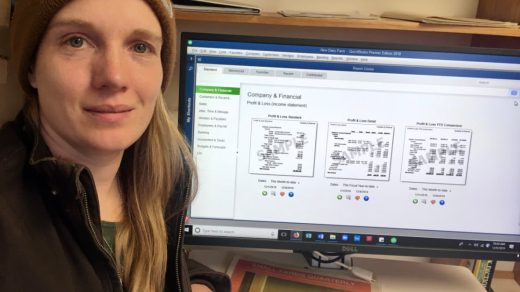In the intricate world of agriculture, every step from planting seeds to selling crops plays a crucial role in the success of a farm. To navigate this complex process efficiently, farmers are turning to advanced tools such as a farm management system. This sophisticated software streamlines operations, enhances decision-making, and maximises productivity. Let’s explore how implementing them can revolutionise crop production and take your farm to new heights of success.
Streamlined Operations with Farm Management Software
Gone are the days of manual record-keeping and scattered data. A modern farm management system consolidates all aspects of farm operations into a single, integrated platform. From inventory management and crop planning to labour scheduling and financial tracking, farm management software streamlines operations and centralises data, enabling farmers to make informed decisions and manage their farms more efficiently.
Precision Planning and Decision-Making
Effective crop production begins with meticulous planning and strategic decision-making. A farm management system provides farmers with valuable insights and analytics to optimise planting schedules, manage inputs, and mitigate risks. By leveraging historical data, weather forecasts, and predictive analytics, farmers can make data-driven decisions to maximise yields, minimise costs, and improve overall farm performance.
Resource Allocation and Efficiency
Efficient resource allocation is essential for maximising productivity and minimising waste on the farm. They help farmers optimise resource allocation by providing real-time visibility into inventory levels, equipment usage, and labour availability. By tracking inputs, monitoring usage, and automating workflows, farmers can ensure that resources are allocated efficiently, reducing downtime and improving operational efficiency.
Enhanced Crop Monitoring and Management
Monitoring crop health and responding to changing conditions in real-time are critical for successful crop production. These system enables farmers to monitor crop growth, track field conditions, and identify potential issues early on. By integrating with IoT sensors, drones, and other smart technologies, farmers can collect data on soil moisture, temperature, and nutrient levels, allowing them to adjust irrigation, fertilisation, and pest control strategies as needed.
Improved Traceability and Compliance
Agriculture traceability software are becoming increasingly important in the agricultural industry. These systems enable farmers to maintain detailed records of crop production activities, from seed planting to harvest and sale. By tracking inputs, recording application rates, and documenting field activities, farmers can ensure compliance with regulatory requirements and provide consumers with transparent information about the origin and quality of their produce.
Conclusion
In conclusion, a farm management system offers a powerful solution for optimising crop production and enhancing farm efficiency. By streamlining operations, enabling precision planning and decision-making, optimising resource allocation, enhancing crop monitoring and management, and ensuring traceability and compliance, farmers can revolutionise their farming operations and achieve greater success.


